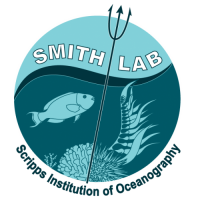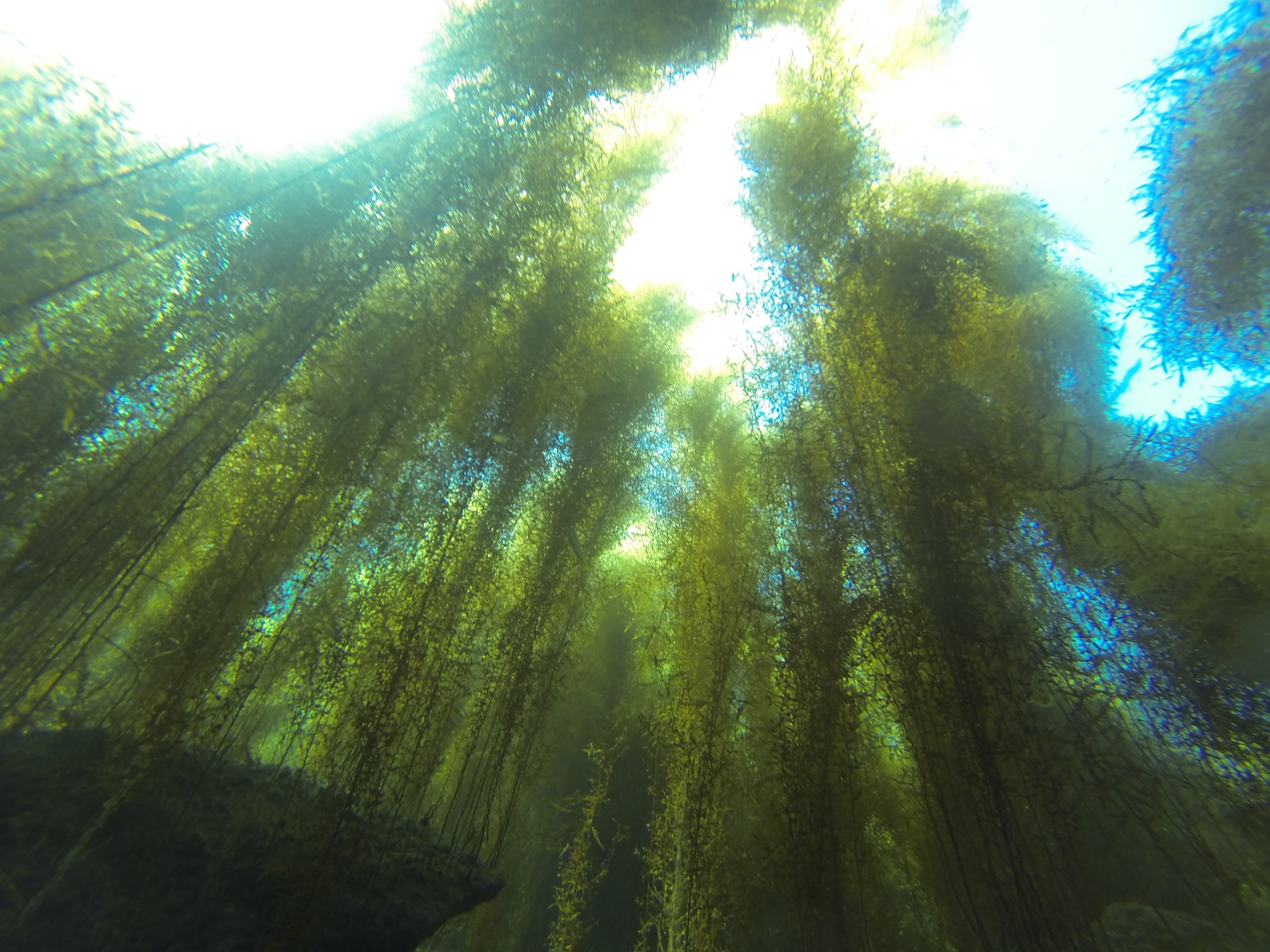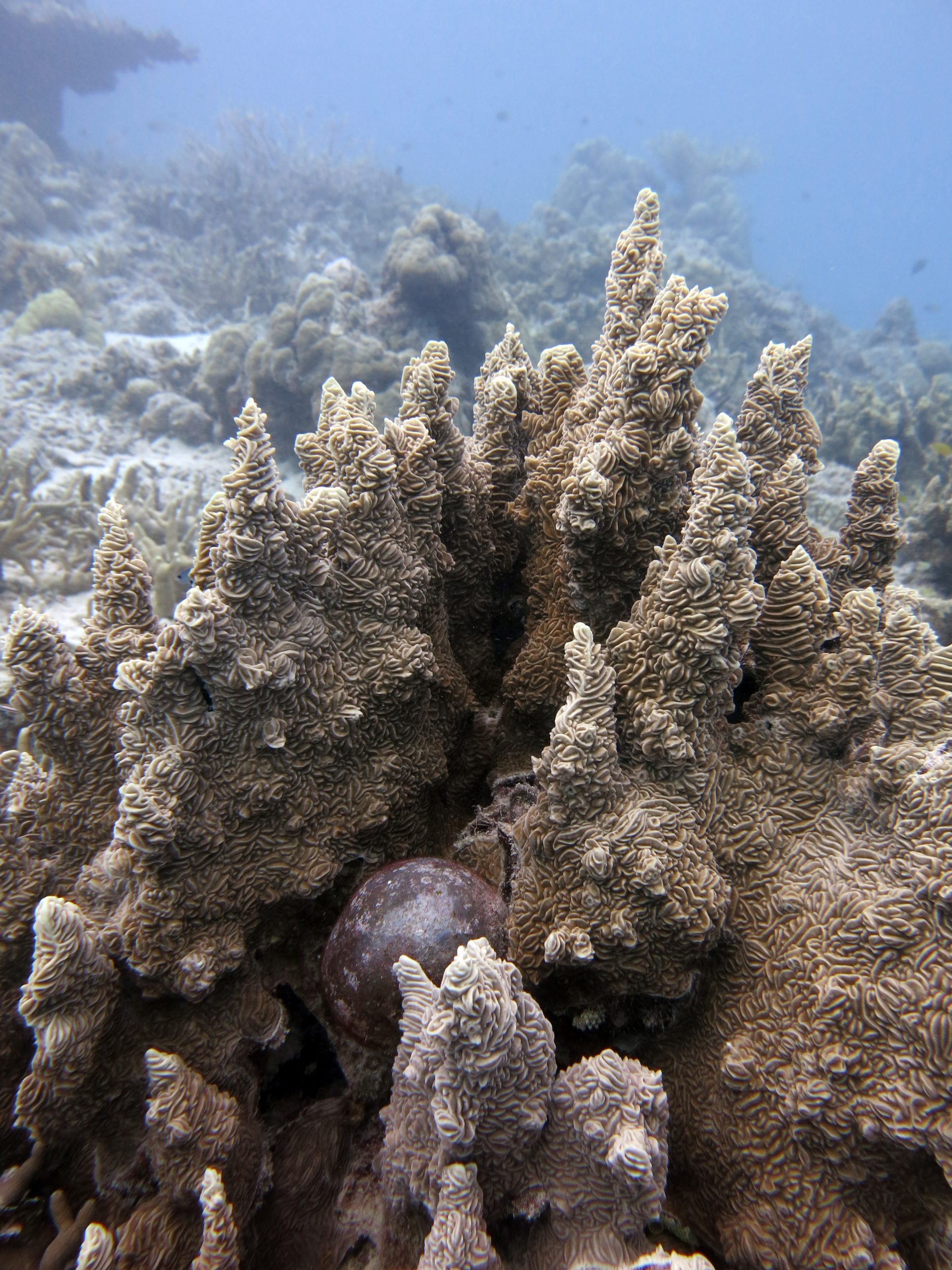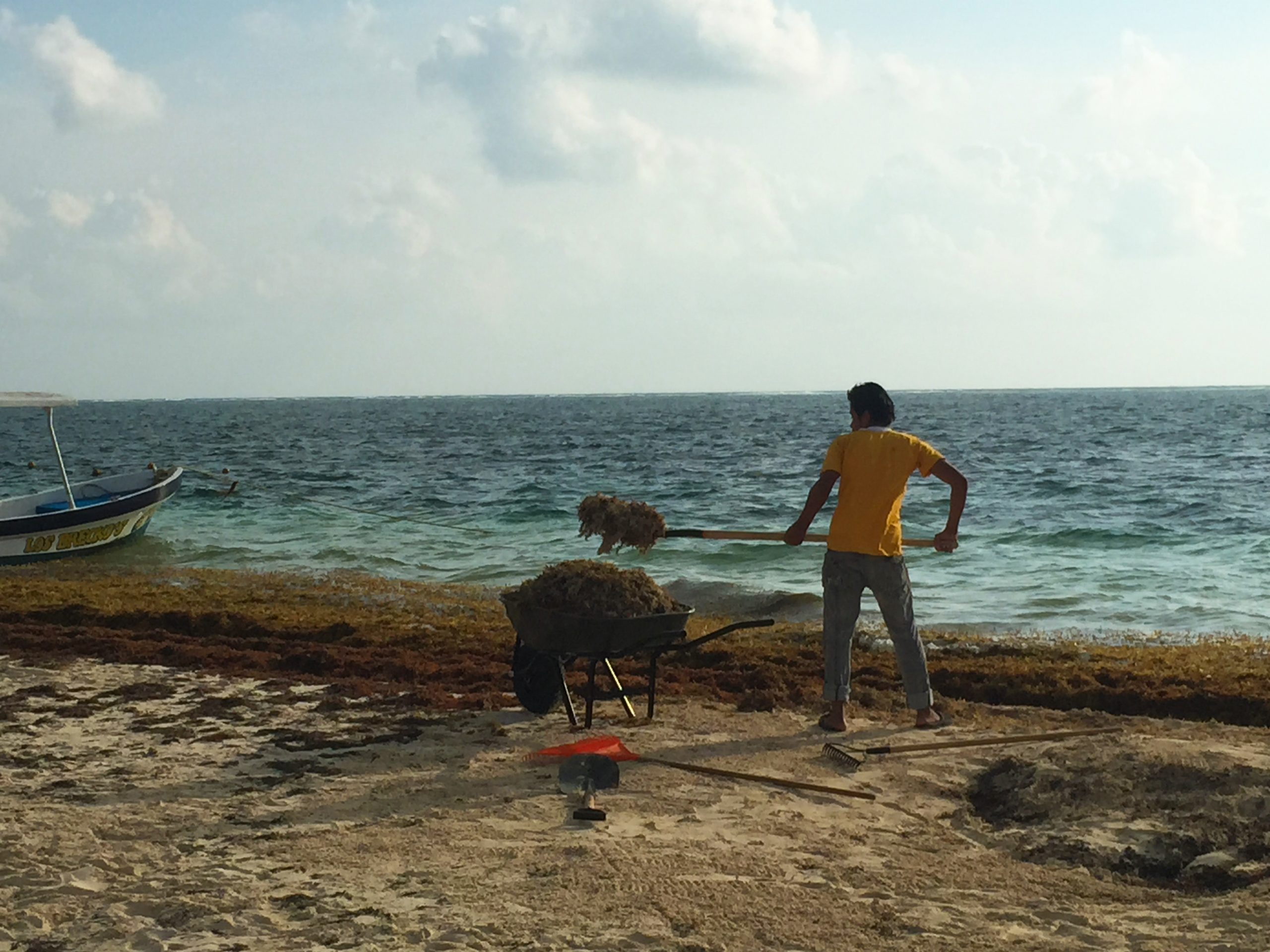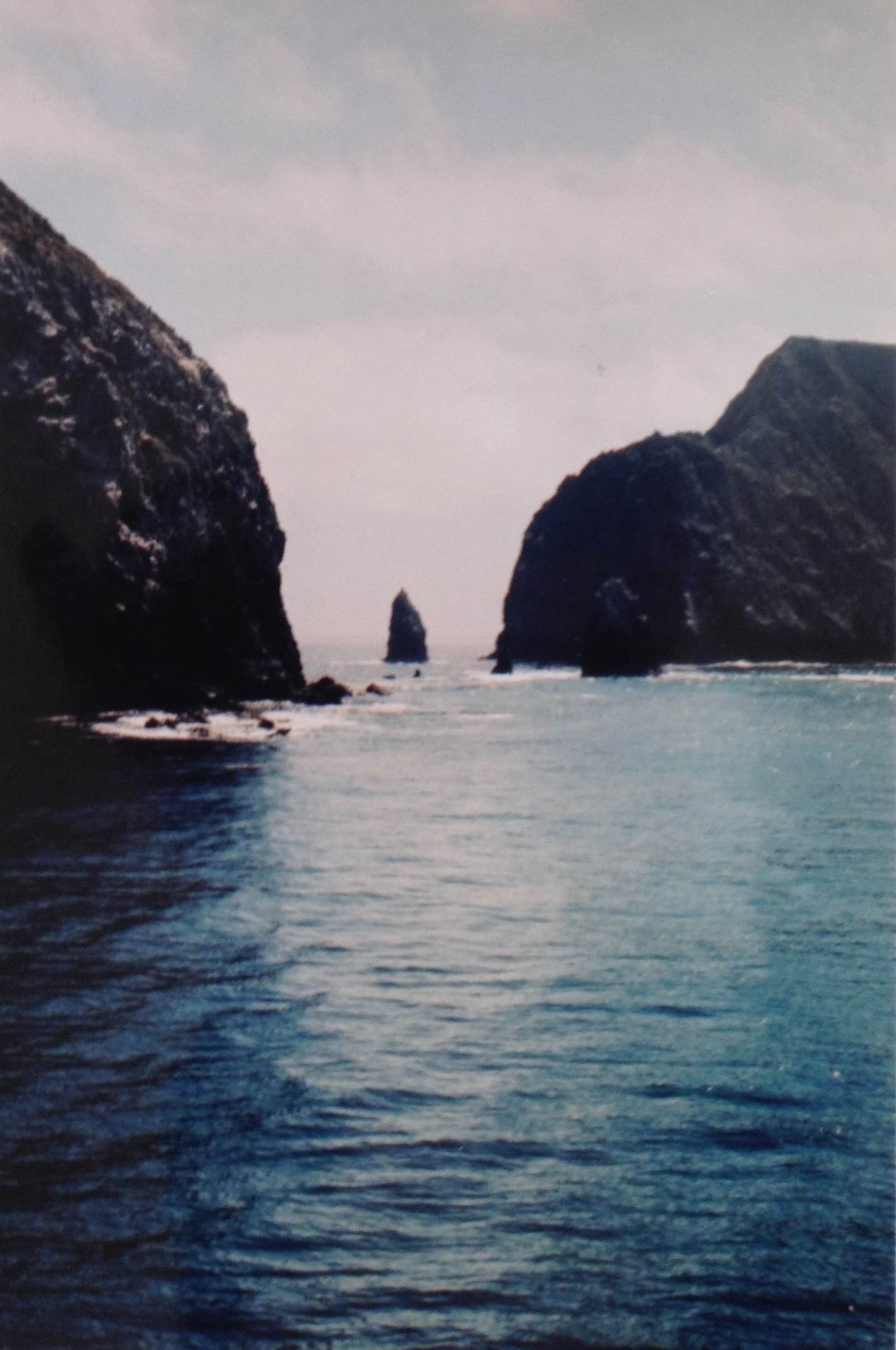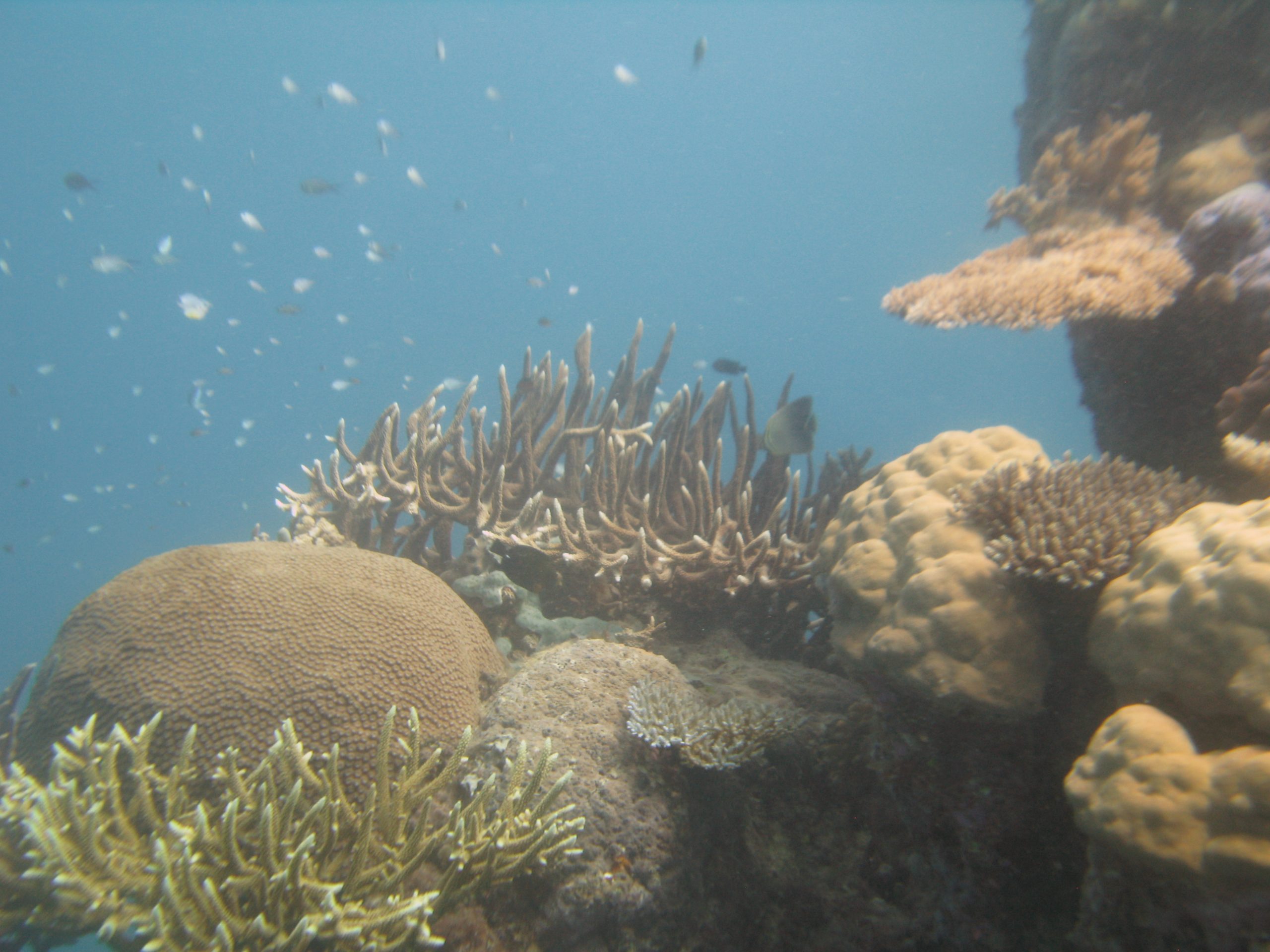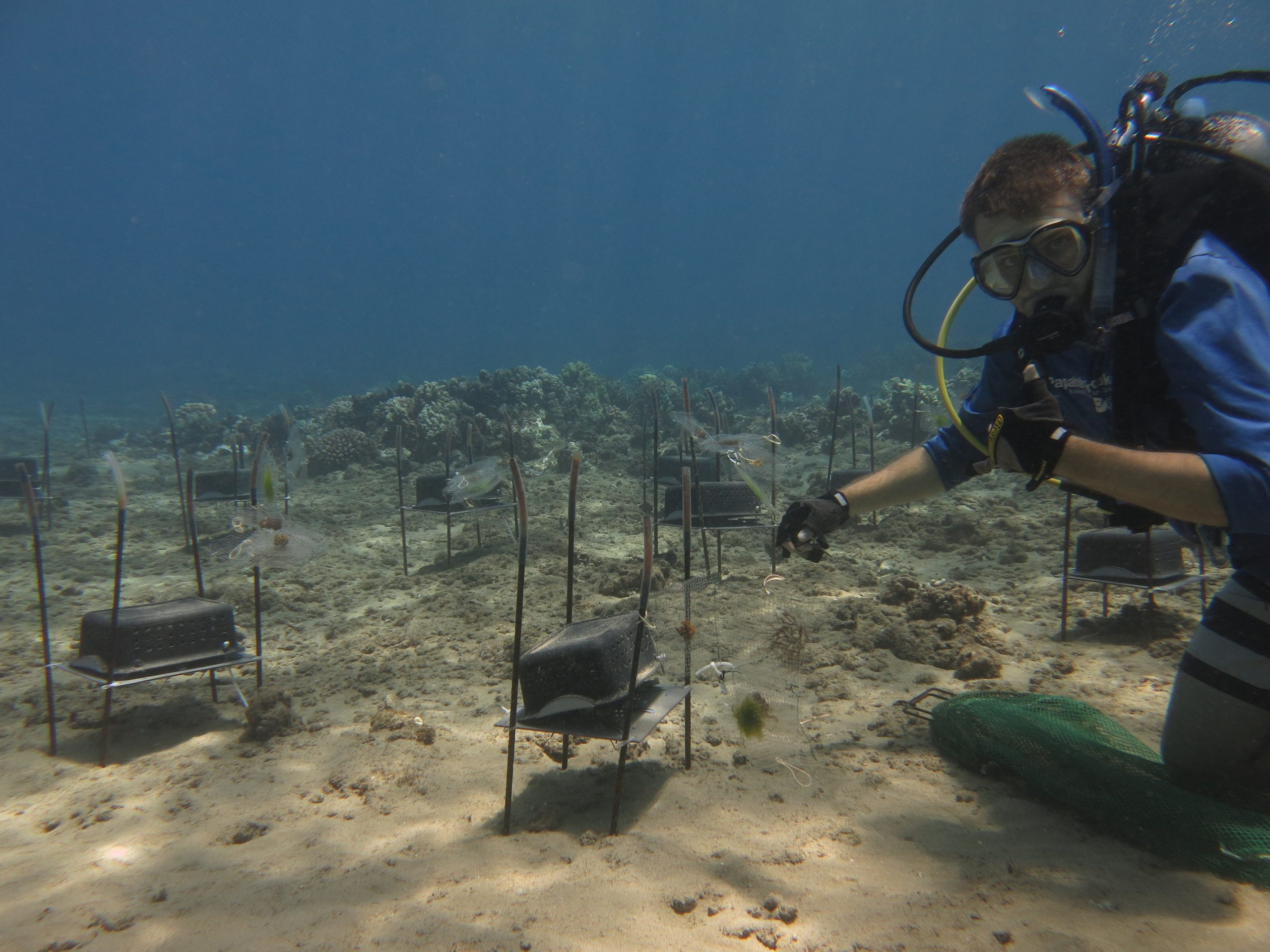By Niko Kaplanis In April of 2006, during a survey for the Channel Islands Research Program (CIRP), renowned scientists Kathy Ann Miller and John Engle discovered an established population of the invasive alga Sargassum horneri near the Wrigley Marine Science Center at Santa Catalina Island. This was the first instance of the species being documented at one of California’s offshore … Read More
The Faces and Functions of Algae on the Reef
By Samantha Clements Algae, often referred to as “seaweed,” are underwater “plants” that, unlike land plants, lack a vascular system. Algae live underwater and obtain water, nutrients, and sunlight directly from the environment. Because algae don’t need a vascular system, they come in many shapes and sizes and may look very different from land plants. Some algae, such as Ventricaria … Read More
Adventure in Puerto Morelos, Mexico
By Mike Fox Last week I traveled south to Puerto Morelos, Mexico to participate in an intensive 3-week course about Light and Photosynthesis on Coral Reefs. Hosted by Dr. Roberto Iglesias-Prieto and the National Autonomous University of Mexico (UNAM), this class provides an incredible opportunity to study the photosynthetic physiology of corals, algae, and seagrasses. Our course is taught … Read More
Northern Channel Islands Algae Collection Trip
By Niko Kaplanis In a recent collaboration with the Paul Jensen Lab here at Scripps, I travelled to the Northern Channel Islands to assist with collections for their research. The Jensen lab focuses on microbial distributions and interactions with marine plants and invertebrates as well as sequence-based approaches to the discovery of natural products from marine microbes. Our objective for … Read More
Coral Reef Ecosystems: Human Impacts, Pristine Reefs & Conservation Strategies
Jeffery B. Graham Perspectives on Ocean Science Lecture Series presents Dr. Jenner Smith Check out Dr. Smith’s presentation here! http://www.ucsd.tv/search-details.aspx?showID=28675 Understanding how humans impact marine ecosystems is crucial to developing successful conservation strategies that protect the health of our ocean. Discover how Scripps marine ecologist Jennifer Smith and her team are conducting research relevant to solving human-induced problems in environments … Read More
The CAU Slaughterhouse Chronicles
By Adi Khen As a first-time volunteer at the Smith lab, I got to be involved in one of the most exciting parts of data processing: drying, weighing, acidifying and, basically, slaughtering CAUs! Let me explain… CAU stands for Calcification Accretion Unit, or in this case a set of two stacked PVC tiles that are used to measure carbonate … Read More
Influential conservation papers of 2014 – featuring Smith Lab’s Clinton Edwards!
Clint Edwards, et al. publication, Global assessment of the status of coral reef herbivorous fishes: evidence for fishing effects, has been selected as one of the most influential conservation papers of 2014!! Congratulations Clint & Smith Lab!!! http://conservationbytes.com/2014/12/22/influential-conservation-papers-of-2014/
Learning About Coral Diversity and Conservation on the Great Barrier Reef
By Abby Cannon: This September I left my usual seagrass habitat and helped the Khaled bin Sultan Living Oceans Foundation survey corals on the Great Barrier Reef. Somewhere in the midst of identifying all of the corals within a ten meter by one meter belt at various sites I reached the conclusion that everybody interested in corals needs to visit … Read More
My first summer in the field – by Gideon Butler
My first summer in the field When I tell people that I spent six weeks on Maui this summer, nobody seems to believe that it wasn’t a vacation. I tell them that I was working from dawn to dark every day and that my body was covered in scrapes and bruises by the end, but all they hear is, … Read More
Surfer / Scientists enter NatGeo contest to image the world’s best surf spots
Clinton Edwards and Clifford Kapono from the Scripps Instituition of Oceanography and UCSD, are proposing a 1 year project to visually map (think Google-Earth) the health of the coral reefs under the world’s most famous waves. This project was sent to the National Geographic and their video submission, “Through the Surface” competed with over 700 other projects before being chosen … Read More

